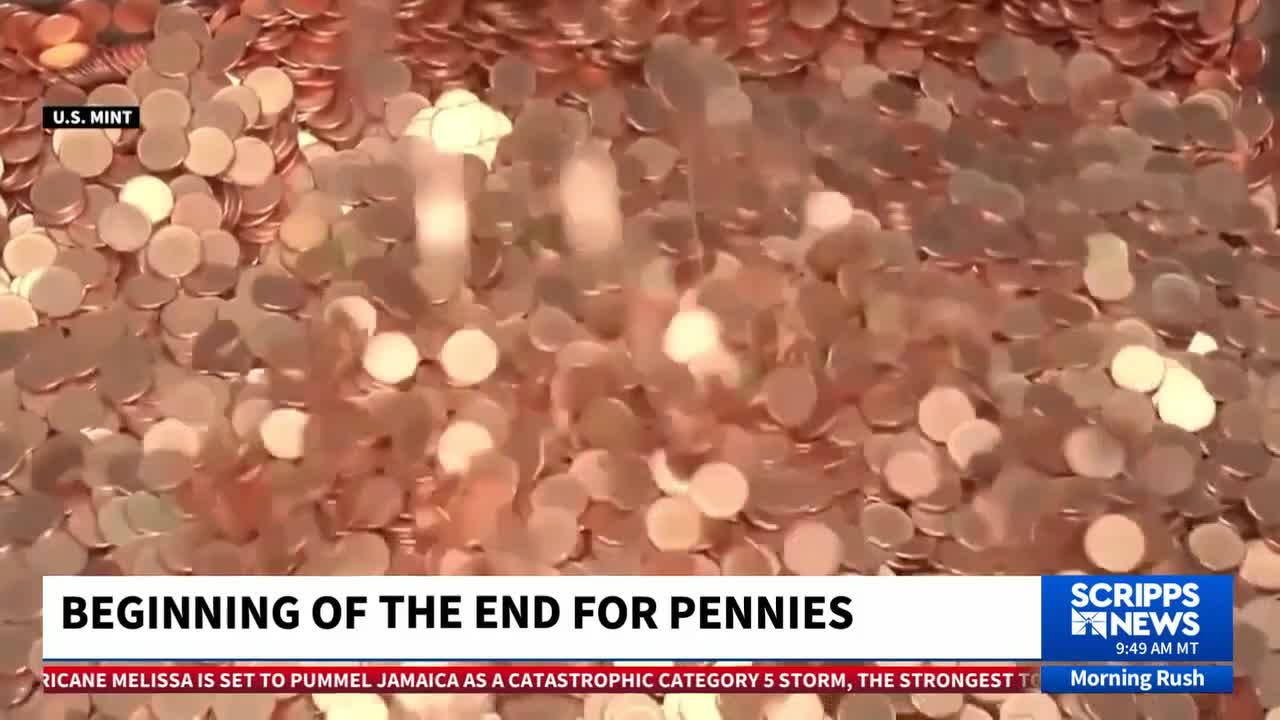We may be seeing the beginning of the end for the penny.
Local shortages are showing up in pockets of the country, but most Americans haven't felt it — yet.
"Most transactions today are digital, but the people who tend to use cash and rely on cash will definitely feel the penny shortage before the rest of us experience it, if at all," said Deidre Popovich, associate professor of marketing at Texas Tech University.
Without pennies, businesses will have to decide whether to round prices to the nearest nickel or even dollar when it comes to cash transactions. But the biggest changes are likely to be in how items are priced, changing the familiar "99‑cent effect" where a price just under a dollar feels cheaper.
IN RELATED NEWS | How the value of the US dollar impacts overseas travel
"This is called the left digit effect because our brain tends to process information from left to right. So a price of $4.99 feels a lot cheaper to us than a price $5, even though they're only one cent apart," said Popovich.
Some companies are already making adjustments. Kroger stores are asking customers for exact change.
"We continue to assess the impact of the U.S. Treasury's decision to end penny production. If using cash for payment, we kindly ask customers to consider providing exact change. Kroger will continue to accept pennies for payment," a Kroger spokesperson wrote in an email to Scripps News.
The family-owned convenience store Sheetz said some of its locations may be short on the copper coins, and in those locations customers are informed with signs and encouraged to use their mobile app or cashless payments when possible.
"Sheetz is not requiring customers to round up on purchases. Customers can choose to round up their purchases in order to donate to our charitable partners, including Sheetz For The Kidz, a nonprofit founded by Sheetz employees," according to Nick Ruffner, Public Affairs Manager for Sheetz
Truck stop Love's said the penny shortage has become evident in a number of their stores across various states and is rounding cash purchases in favor of the customer.
"This is a temporary measure while we work toward a long-term solution. Love's appreciates our customers' understanding and patience as we navigate this change," a spokesperson for the company said.
Gas station Kwik Trip is also rounding its cash totals.
"I think that there is some practical implementation of rounding that businesses are going to do on the fly. But I don't necessarily think it's going to have a significant impact on a lot of consumers or businesses," said Brandon Parsons an economist at Pepperdine University.
IN CASE YOU MISSED IT | Nickels only? Grocers warn ending pennies could put stores in legal hot water
There are a few wrinkles. In some cities and states cashless-only transactions are banned. And under federal rules, retailers that accept SNAP benefits are required to treat customers equally, making rounding totals for cash customers and not for digital transactions a difficult policy decision.
The National Retail Groups sent a letter to Congress in September, asking the government to make rules before the shortage issue becomes widespread.
From a cost perspective, phasing out the penny makes sense. Each penny costs nearly four cents to produce — four times its buying power.
"It's pretty straightforward that we shouldn't be necessarily producing money that the cost is higher," Parsons said.
Popovich said the biggest impacts are likely to be emotional — not economic. The penny, after all, has a place in American culture.
"We have sayings around the penny, like 'a penny saved is a penny earned' and 'find a penny, pick it up, all day long, you'll have good luck' and stuff like that. So, it feels, I think emotionally symbolic to people," explained Popovich.
The U.S. is not the first to grapple with currency more expensive to produce than it's worth. Countries like Canada, New Zealand and Australia have already phased theirs out.
While the penny might be disappearing from our wallets, it still holds a place in our currency's history. In 1909 the penny became the first circulating coin in the US to have a president's face on it.





